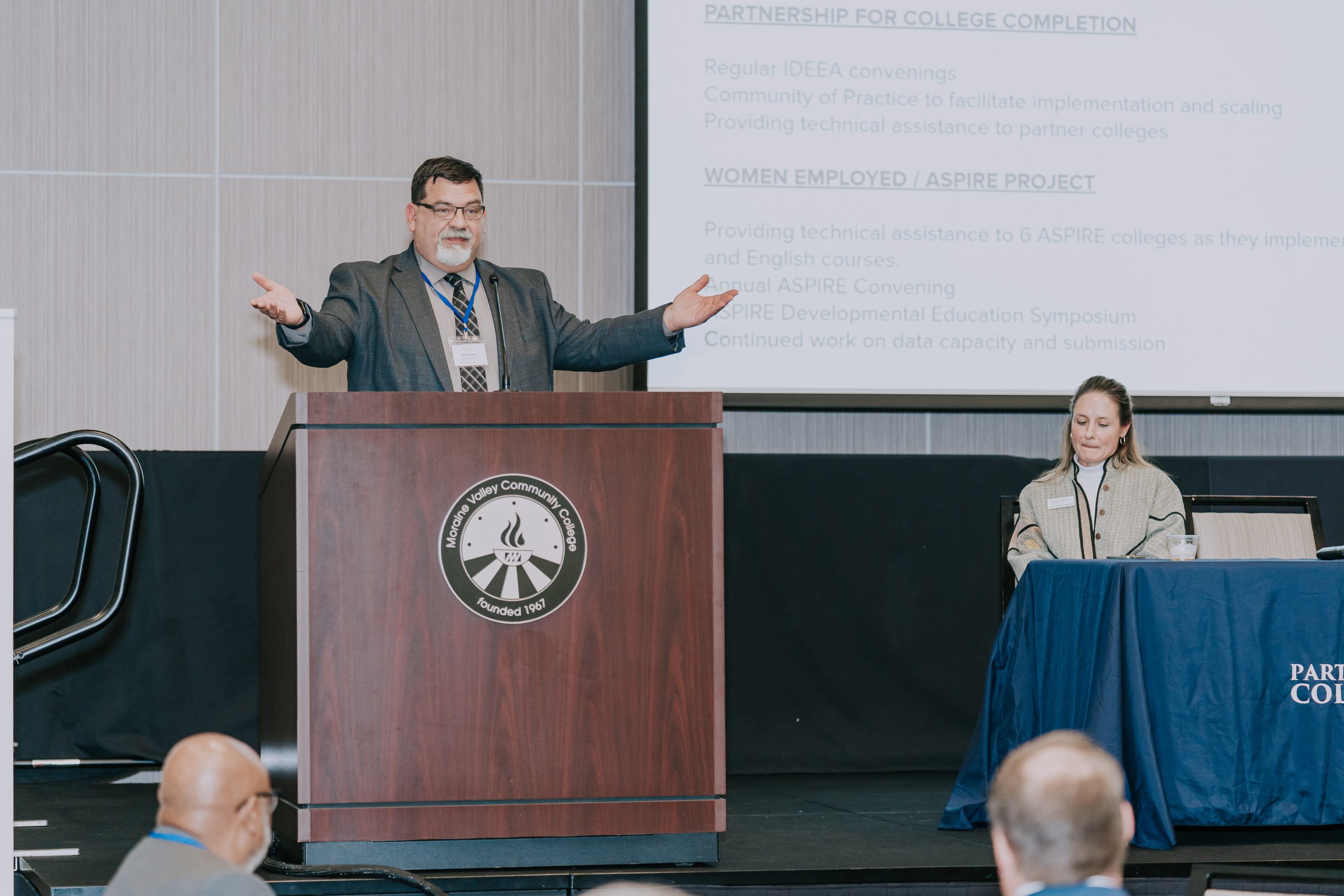The Partnership for College Completion hosted its first, in-person IDEEA Exchange on Wednesday, Oct. 30, at Moraine Valley Community College.
The event was an opportunity for the 17 institutions that make up the IDEEA community to gather and share learnings in reforming developmental education programs. Attendees experienced topic-driven sessions facilitated by PCC and practitioners from around the country engaged in developmental education reform.


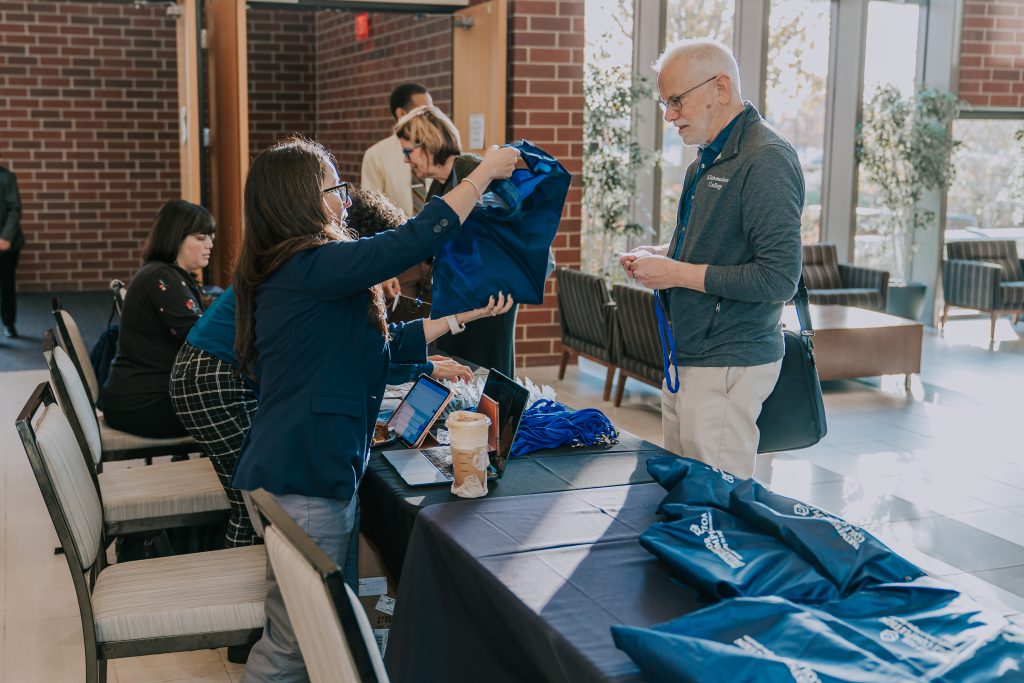



Dr. DeShawn Preston, Research Associate at MDRC, served as the keynote speaker and he presented, “The Evolution of Developmental Education Reform.”
“A developmental education placement can shape a student’s postsecondary trajectory, and their academic and social sense of self,” Dr. Preston noted. “Placement is often off-putting at least and demoralizing at worst. It has a potential to diminish academic identity and research shows that there are better ways.”
“A lot of this placement is like putting a square peg in a round hole. A single placement exam should not be used to place students in developmental education courses.”
Dr. Preston also covered the three types of reform being adopted around the country: multiple measurement assessment, co-req/acceleration and math pathways. He also highlighted PCC’s report, “A Progress Report on Reforming Developmental Education in Illinois,” which is the first of periodic reports from PCC with relevant data on DERA implementation, showing successes, areas for improvement, and future metrics to evaluate change.
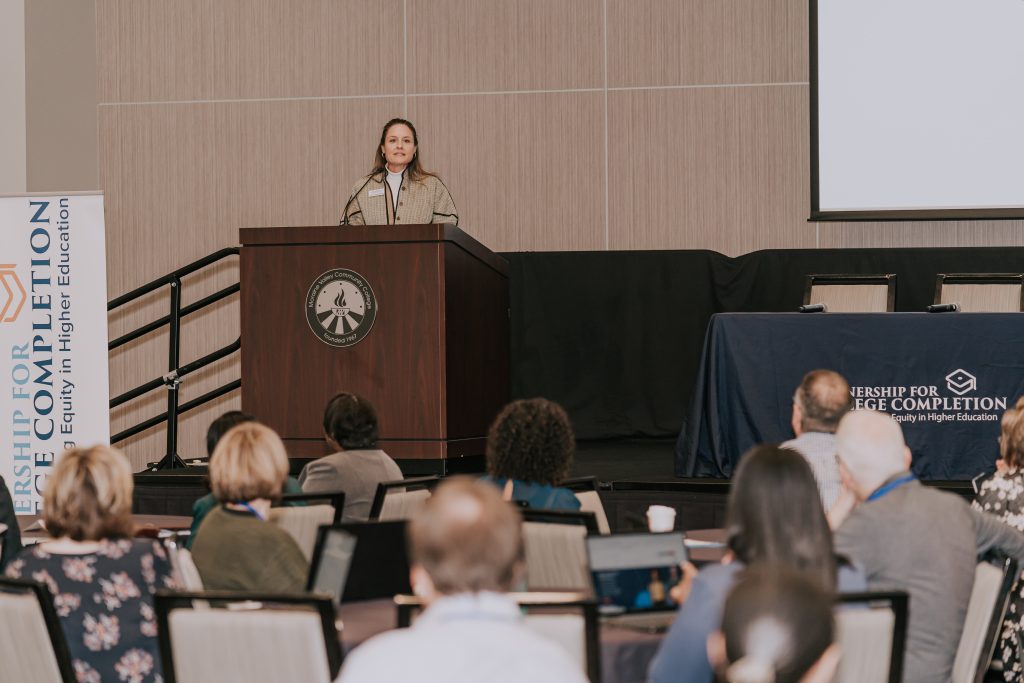

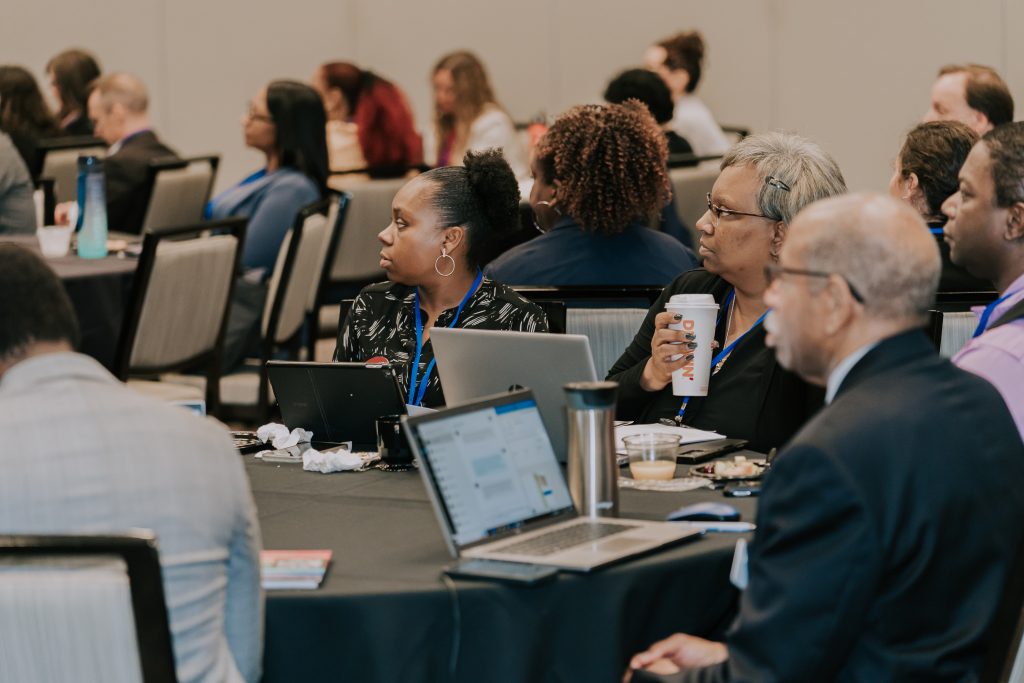

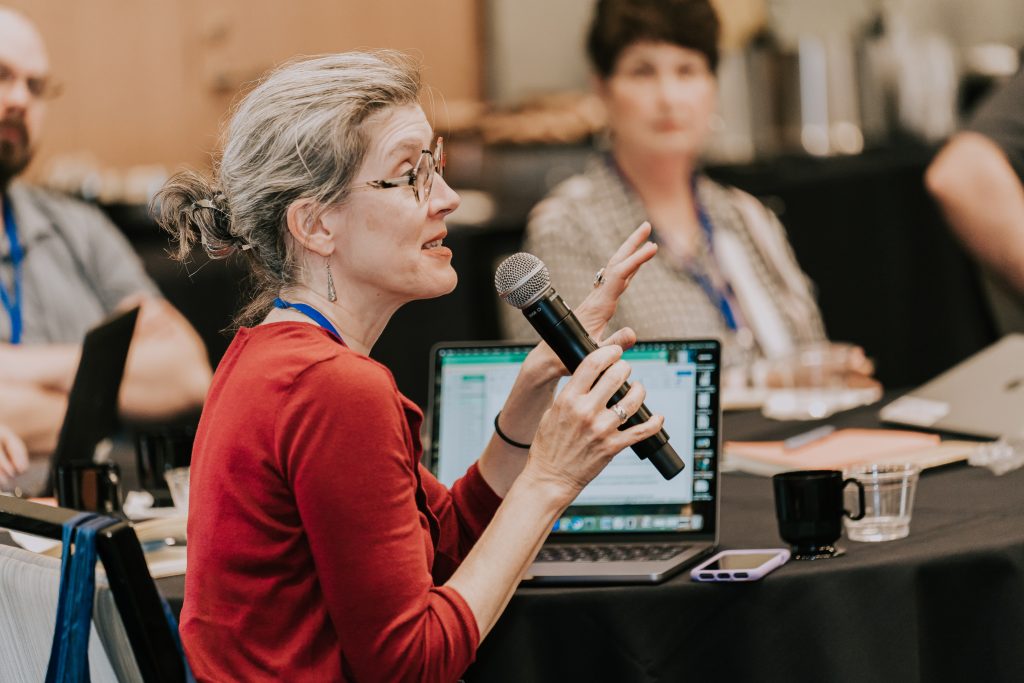

Dr. Preston summed up his presentation by reminding attendees that institutions should meet its students’ needs, not make students fit into the institution’s goals. “If you think of a college as a business, it’s not the student’s job to fit into the business goals, but the business needs to adjust to the customer’s (in this case, the student’s) needs,” he said. “But we must do that in an equitable way.”
The next part of the day was the panel presentation, “Data Informed Impact in Dev. Ed. Reform and Co-Req Scaling,” by Almy Education’s Dr. Kathy Almy and PCC’s Mike Abrahamson and Giselle Palacios.

Abrahamson set the tone for the conversation with an overview of the timeline of DERA and showed 2019 data on developmental education course placement versus graduation rates by categories of students. Palacios followed up with updated data on the decline of enrollment in dev ed courses and the most successful model implemented. She also shared the concerns that could be inferred from the data, including the misinterpretation of DERA may be lowering compliance.
Dr. Almy brought it together by telling the audience that the goal of “gateway courses are successful at scale when they work for everyone who interacts with them, from start to finish. We want people to have buy-in because that is how you make the work last.”
Dr. Almy also shared tools to investigate placement effectiveness depending on the capacity of each institution.
- Low lift: Placement spreadsheet with student data
- Medium lift: Pathways analysis using the Almy Education worksheet and heat map
- Heavy lift: A validity study using SPSS or Excel

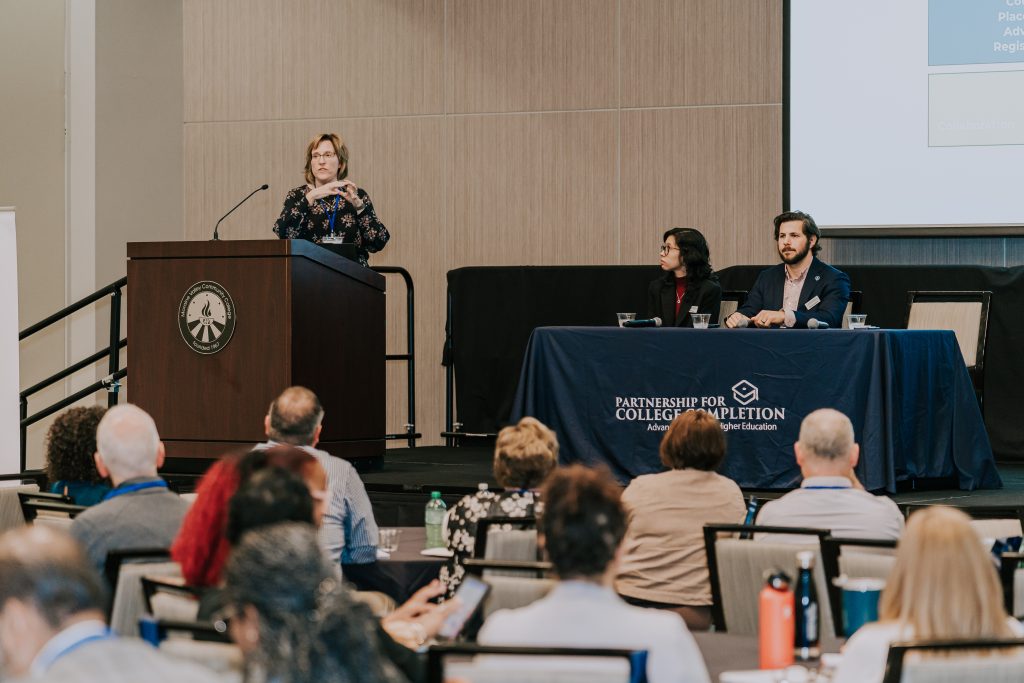

PCC Executive Director Dr. Lisa Castillo Richmond returned to the stage with Illinois Community College Board’s (ICCB) Executive Director Dr. Brian Durham to share the current state of IDEEA and the plans of the cohort moving forward. The changes participating institutions and PCC can expect include:
- Compliance with DERA, with student-centered, equity-focused changes
- Uniformity in placement across all of Illinois’ colleges and universities
- Placement into traditional developmental education courses continues to decline
PCC is also working to support institutions at the campus-level and the state more broadly through collaboration with ICCB, IBHE and the legislature to implement DERA with fidelity. In doing this, PCC and our partners are uplifting quantitative and qualitative data, and sharing stories and case studies of reform, with the goal of supporting IHEs to scale reforms that will benefit students, increase college completion, reduce time to degree, and dramatically reduce disparate racial impacts in these areas. PCC is also working with an evolving group of experienced organizations and individuals to bring their expertise to bear on DERA implementation.
Dr. Castillo Richmond also said that the future of IDEEA is up to the partner institutions. “PCC wants to do and provide what they (institutions) need and the resources that move the needle,” she said.


Dr. Durham shared the ongoing agenda ICCB is taking, which are:
- Continued, targeted work around the state framework for placement
- Focus on assessing and scaling developmental education
- Deeper focus on closing equity gaps
- Expand data capacity and analyses
- Incorporated into ICCB’s Administrative Rules
- Incorporation into the ICCB’s Recognition Process (State Accreditation)
Looking ahead, Illinois institutions can expect the following from ICCB in partnership with the Office of Community College Research and Leadership (OCCRL):
- OCCRL leading a review of and developing recommendations for revision of the state framework for placement
- OCCRL convening stakeholders to collaboration on revising the state framework for placement
- OCCRL convening and leading small workgroups to accomplish goals, tasks, and projects as determined by the stakeholder collaboration group
- OCCRL creating briefs, podcasts, or other publications on relevant topics and creating a research hub to house all resources
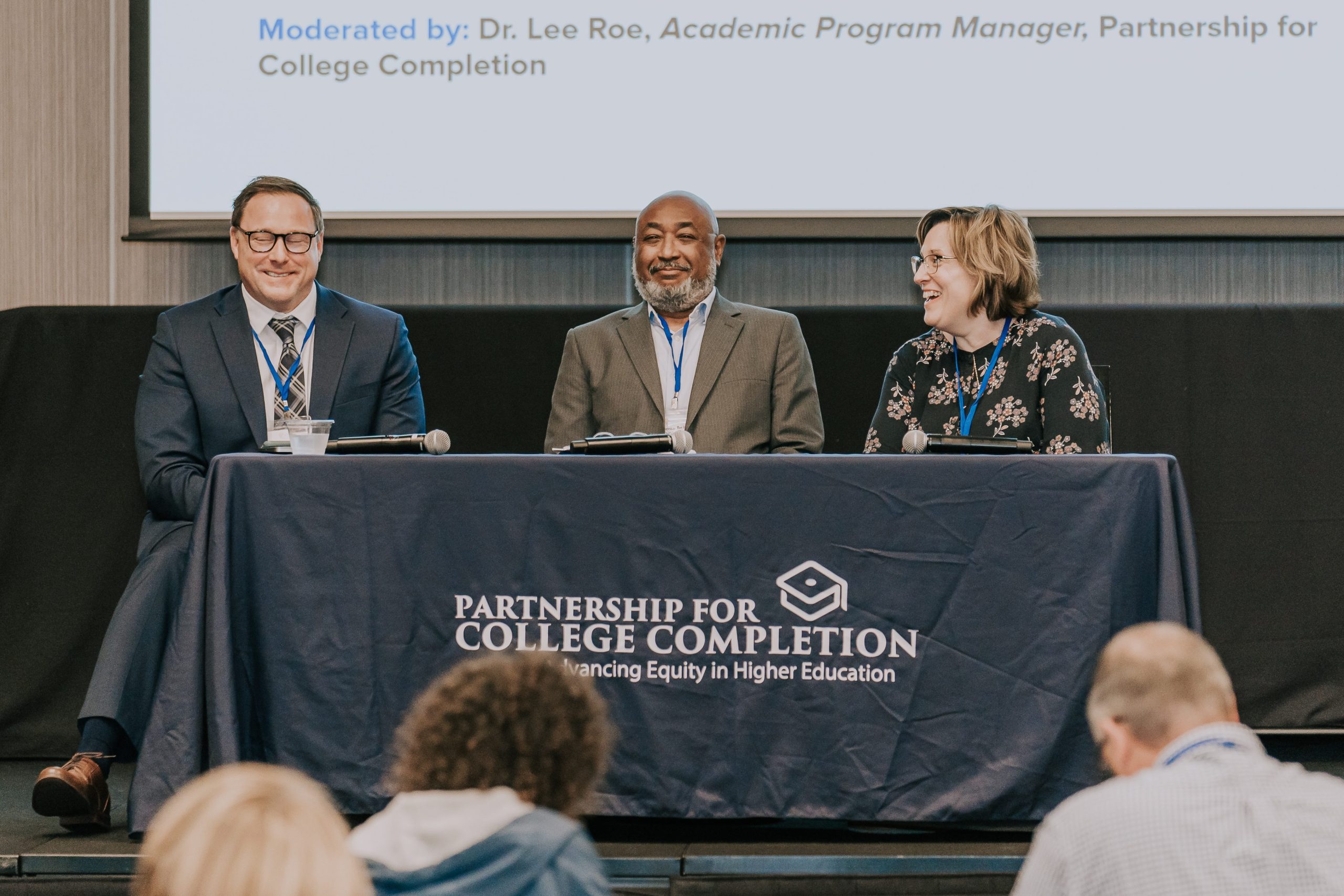
Nathan Wilson, Illinois Community College Board
“With anything we publish, we have to be careful to have context with the data. Through the community college lens, any report we put out has to have that context across community colleges and the areas they serve.”
Dr. Lorenzo Baber, Office of Community College Research and Leadership
“Data doesn’t drive itself. We have to provide the drivers and the capacity for initial training, and continue education throughout the state.”
Dr. Kathy Almy, Almy Education
“Remember, data is information. All institutions have access to information about their students. There are still things you have access to and you can still figure out the pieces with what you have.”
The day wrapped up with a presentation from Angell Howard, Founder of Necessary Change Consulting LLC. She reminded attendees that empathy must be included in equity work.

“What we rarely do is check in on ourselves and if we’re okay. Research shows that empathy is on the decline for all of us. It’s not that we don’t care, but if we cared about everything, we would be exhausted all the time. Our students are coming into college at a whole new level,” Howard said.
She then reminded that equity champions must showcase vulnerability, and to unlearn that vulnerability is a weakness. Vulnerability:
- Is a skill.
- Is having the courage to show up, fully engage, and be seen.
- Is not mutually exclusive from self-management.
Having and showcasing empathy is a vulnerable choice. “What we believe matters. What we experienced matters. If it’s your value, it has to fit in every narrative, not just in certain situations.”
This October IDEEA Exchange is a follow-up to the virtual IDEEA Exchange hosted in April 2024, which focused on how our community of practice can intentionally establish the conditions for students to succeed in gateway English and math courses.

